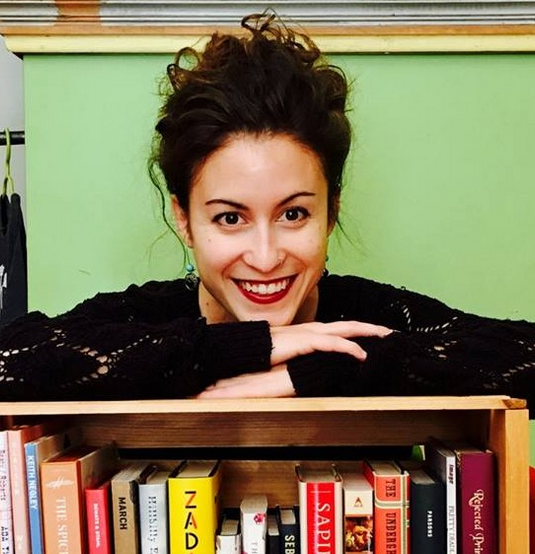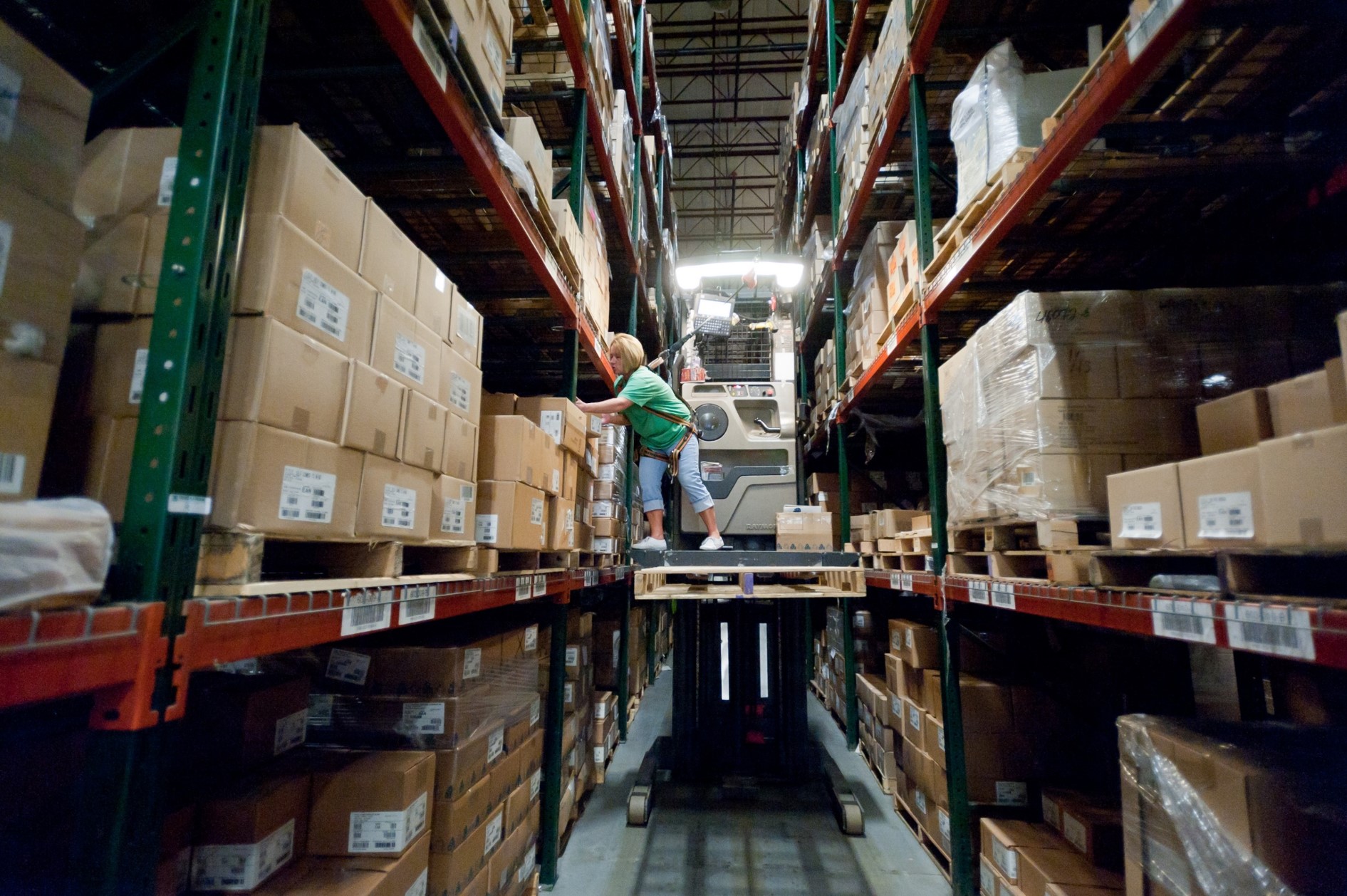 A spot check with wholesalers and distributors showed that all are open and processing orders, exempt from or unaffected by stay-in-place orders.
A spot check with wholesalers and distributors showed that all are open and processing orders, exempt from or unaffected by stay-in-place orders.
Bookazine, Bayonne, N.J., is open and processing orders, according to COO Rich Kallman, who said that the current crisis was even more challenging than 9/11 or Super Storm Sandy or the financial crisis in 2008 and 2009.
Most Bookazine staff is working from home except for key positions and the reduced staff in the warehouse. The company added: "We are in constant contact with our shipping partners, and our sales, finance and other office staff are fully available to you as usual. Please do not hesitate to contact us with orders or with any questions at all. We are here to help you get your customers their book product, and we are here for you."
---
The Hopkins Fulfillment Services Maple warehouse in Pennsylvania is open and fully operational. HFS is also working with stores affected by closures in their areas and can re-route shipments, hold orders and change delivery dates, and is willing to work with them on terms to get everyone through the shutdown periods. HFS can also potentially work with stores to ship directly to their customers.
---
Independent Publishers Group continues to operate its Chicago warehouse as an essential business under the "shelter-in-place" order issued by Illinois Governor J.B. Pritzker. A strategic crew is in place at the warehouse, running in split shifts to eliminate any overlap between team members. IPG's office is closed, and all office staff are working remotely.
"IPG will remain open through these hard times as our obligation is to protect the businesses of the publishers we distribute and to support the national supply chain," CEO Joe Matthews said. "The health and wellness of our partners and employees remains of utmost importance, and steps are being taken to guard all areas of IPG's book business. Books are an essential part of American life."
The company has added the following initiatives:
Effective immediately, IPG is offering a 30% discount site-wide for most of its products. IPG is extending a 30% e-book discount to public and school libraries through OverDrive, 3M Bibliotheca, Baker & Taylor, Mackin, Follett, Vitalsource and Redshelf
IPG's publishing partners are supporting consumers, parents and students with virtual author events and digital resources
All of IPG's catalogues, including frontlist and special categories, will be available as digital editions and can be found at ipgbook.com or on Edelweiss
To accommodate publishers whose print runs may have been disrupted, IPG is optimizing its digital print program and manufacturing books to order.
---
Penguin Random House's huge warehouse and distribution center in Westminster, Md., was spared the governor's order that all nonessential businesses in Maryland close. As the company put it, those operations are considered essential because "our center serves to distribute books to the online and physical retailers that remain open, who get out books to the citizens of all states, including educators and students who, with their school year postponed or ended, must have them for virtual learning, and to general readers of all ages, for whom they provide knowledge and comfort to sustain them in this time of terrible uncertainty and disruption."
The PRH facility is, of course, practicing "all guidelines and protocols for sanitizing, social distancing, and safe work practices to ensure our employees are protected" and urged employees who don't feel well not to come to work and to consult medical professionals. PRH is also adding 40 hours of paid time off to those whose jobs require them to be present at the facility.
---
Simon & Schuster's warehouses in Riverside, N.J., and Milan, Tenn., are both open, operating with reduced staff, both for safety reasons and to accommodate current workloads. Employees who can work remotely, such as the customer service team, are doing so.
The warehouse has been focused on accommodating changes in publishing schedules, in ordering patterns and in the number of outlets that are open to accept shipment of books. When possible, S&S is shipping directly from binderies to accounts.
S&S has seen "aggressive ordering" from wholesalers, especially for backlist titles. At accounts that sell groceries and other supplies, the company is seeing strong traffic and book sales, with children's books doing particularly well at some of those accounts.
S&S is, it said, "working to accommodate the needs of both the independents and the chains as they adapt to their particular local circumstances, and are exploring with them alternate means for holding events."
---
The staff at Hachette Book Group's Lebanon, Ind., warehouse and distribution center is continuing to work every day "keeping HBG's and our clients' books moving out to the marketplace," the company said, and it is taking precautions to ensure the safety of workers.
Hachette added that its books are "continuing to sell in all formats, with the strongest sales in e-books, trade paperbacks, and children's books. Audiobooks are continuing to perform well in all sales channels, and we're seeing sales continue to rise both in online retail and libraries." The company is also adding "extensive online programming through our social channels, websites and newsletters to connect our authors with readers and ensure that our books have maximum visibility."
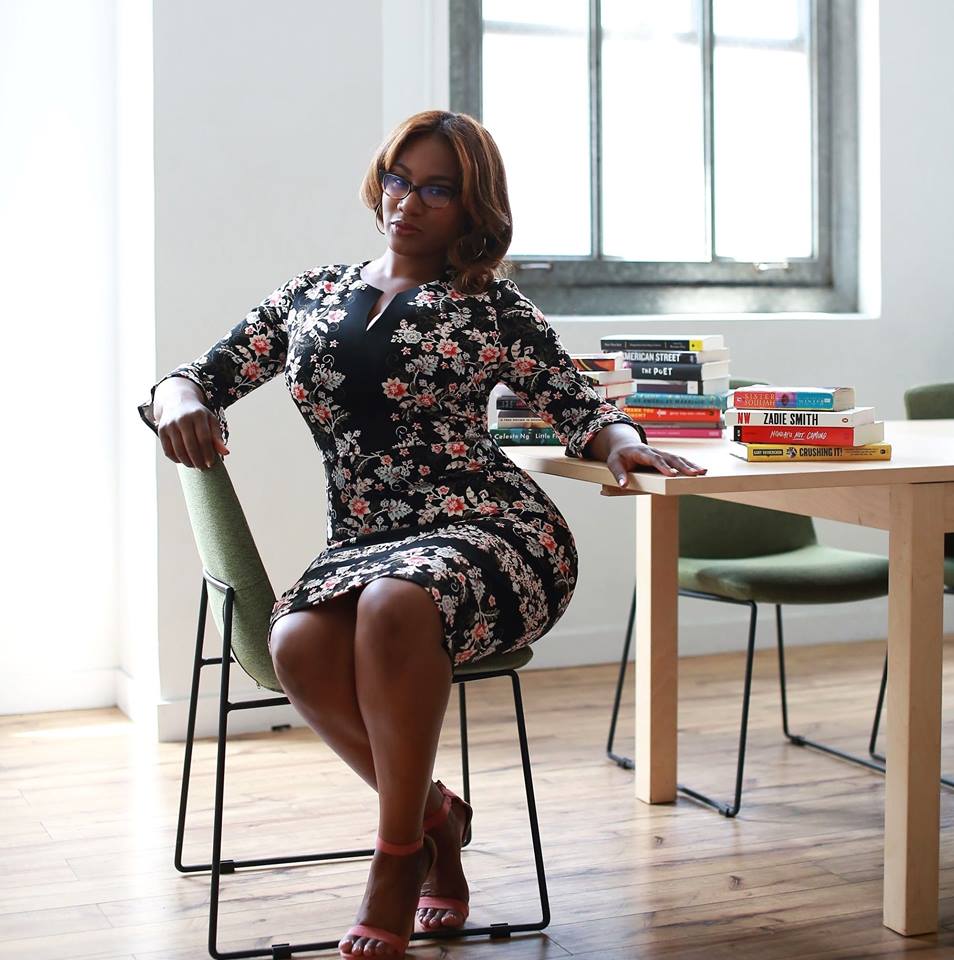 "Dearest Bookboos,
"Dearest Bookboos,









 A spot check with wholesalers and distributors showed that all are open and processing orders, exempt from or unaffected by stay-in-place orders.
A spot check with wholesalers and distributors showed that all are open and processing orders, exempt from or unaffected by stay-in-place orders.
 To help support independent bookstores during the pandemic, Columbia University Press and Princeton University Press are reimbursing purchases staff members make at indies. At Columbia University Press, employees are getting $100 vouchers to spend at any indie between now and the end of April. Jennifer Crewe, director of Columbia University Press, reported that Christie Henry, director of Princeton University Press, first thought of the idea while various university press directors were swapping ideas about "working from home, keeping staff morale up and supporting the whole system by trying to support independent stores."
To help support independent bookstores during the pandemic, Columbia University Press and Princeton University Press are reimbursing purchases staff members make at indies. At Columbia University Press, employees are getting $100 vouchers to spend at any indie between now and the end of April. Jennifer Crewe, director of Columbia University Press, reported that Christie Henry, director of Princeton University Press, first thought of the idea while various university press directors were swapping ideas about "working from home, keeping staff morale up and supporting the whole system by trying to support independent stores." 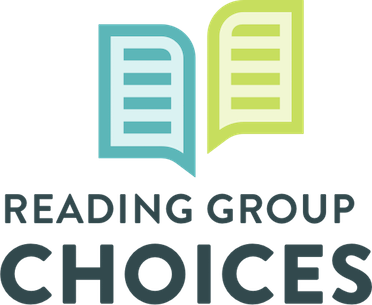 Reading Group Choices
Reading Group Choices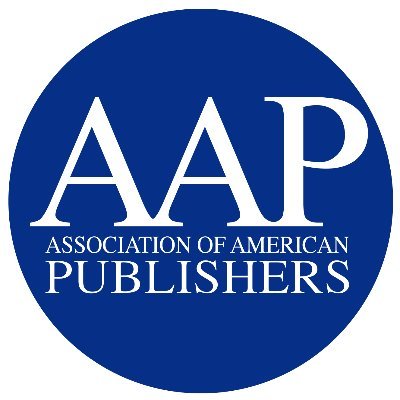 The Association of American Publishers has created a COVID-19
The Association of American Publishers has created a COVID-19 
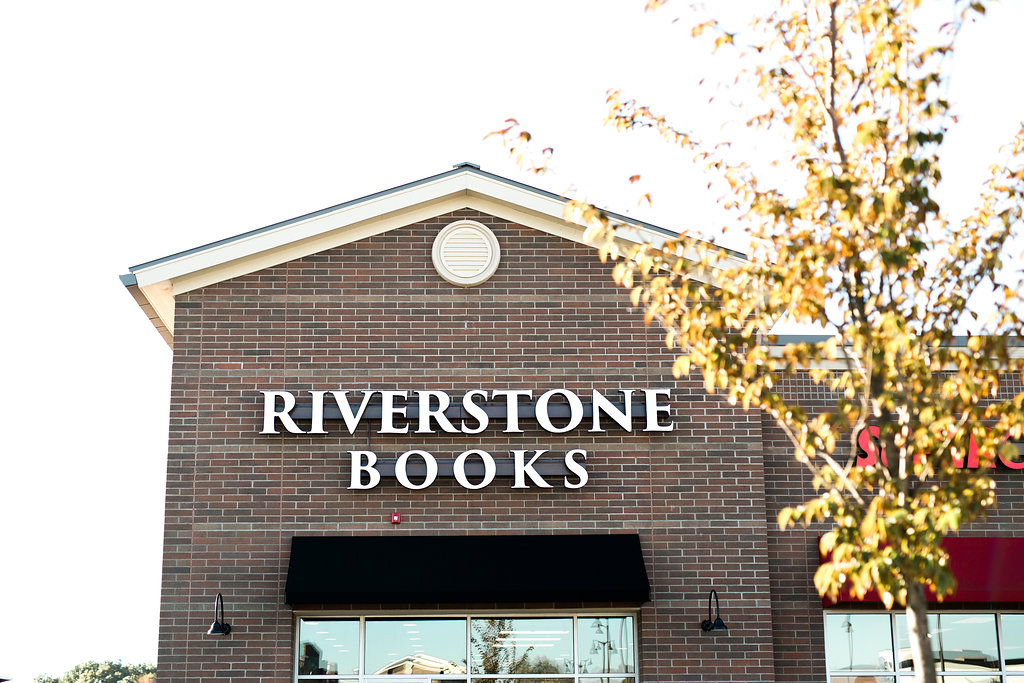 Riverstone Books
Riverstone Books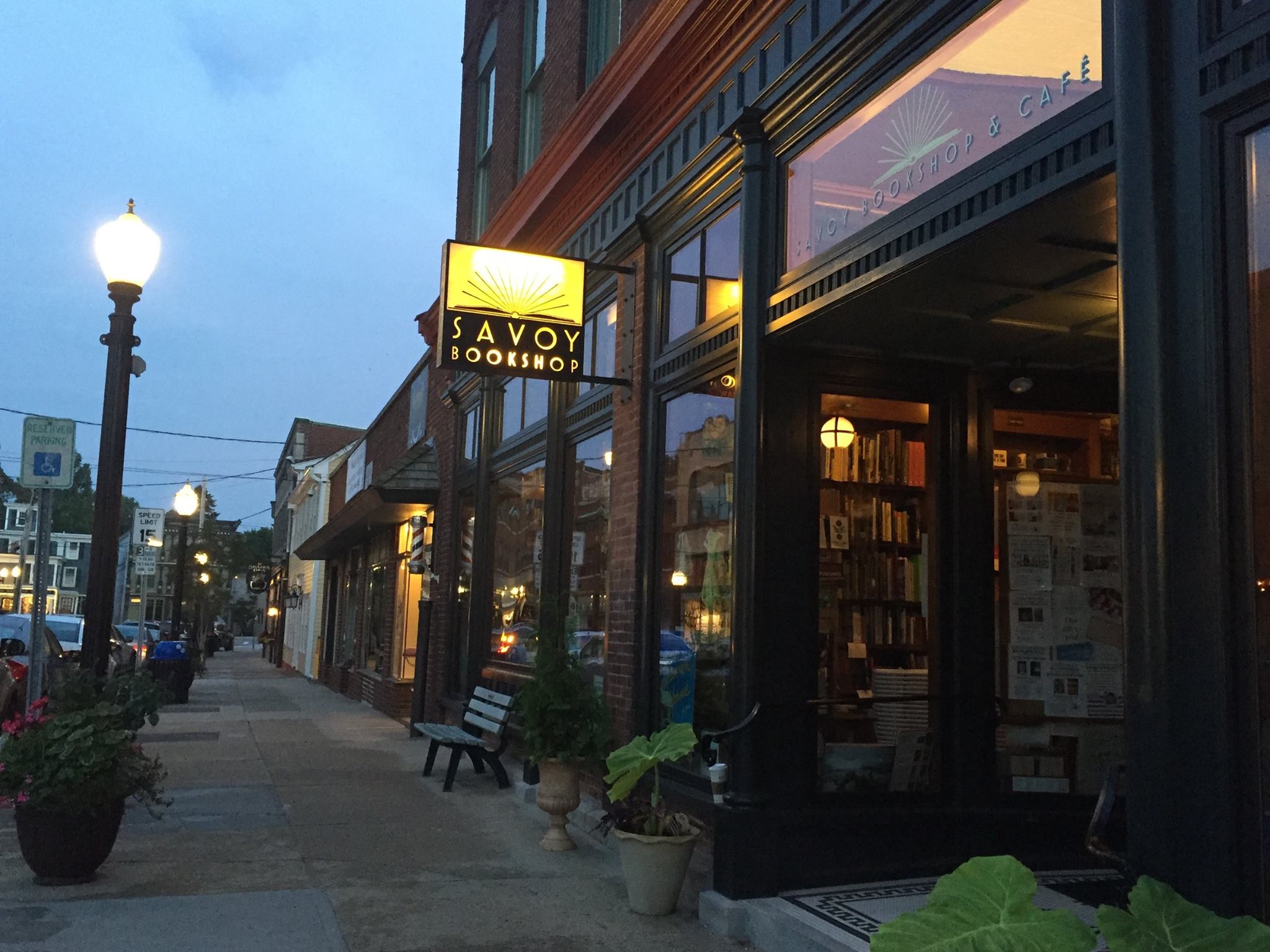 Independent booksellers across Rhode Island "are
Independent booksellers across Rhode Island "are 
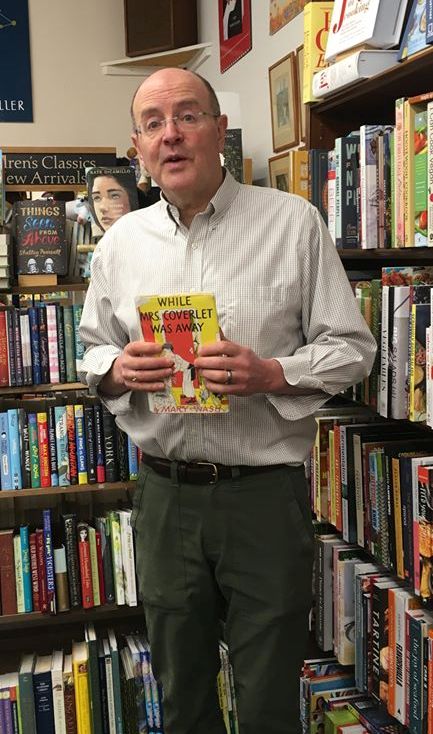
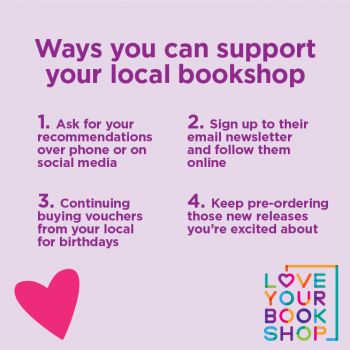 Australian bookshops and other retailers
Australian bookshops and other retailers 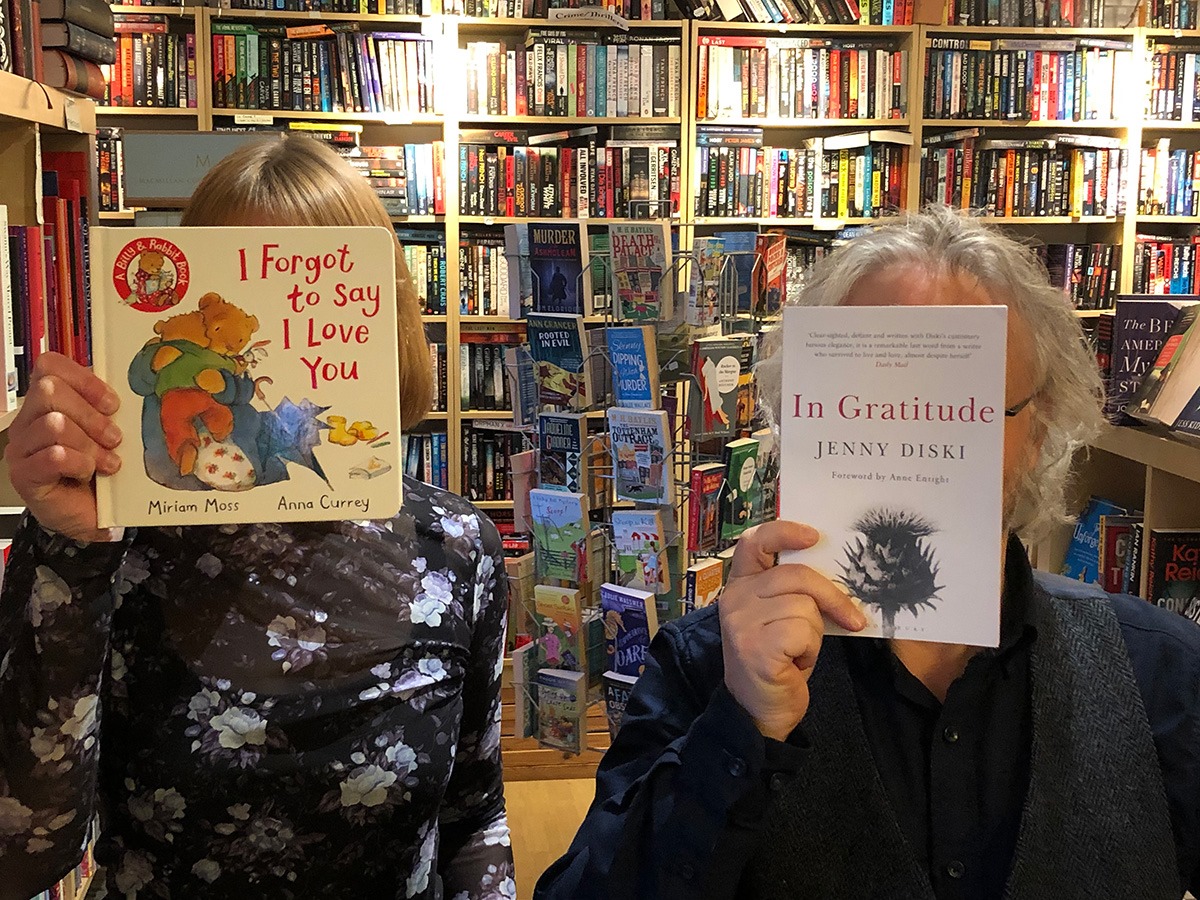 In Sweden last Friday,
In Sweden last Friday, 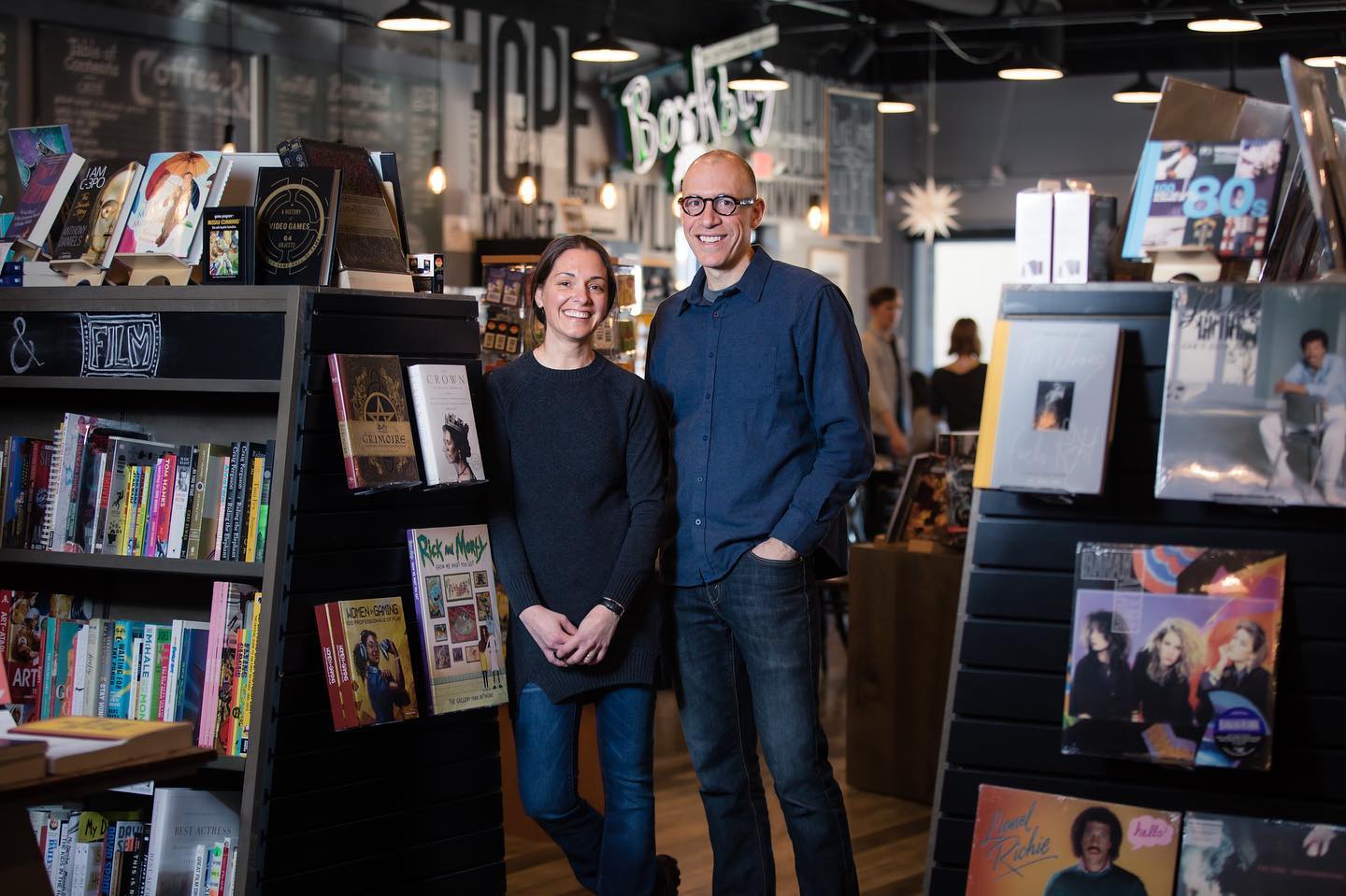 From
From 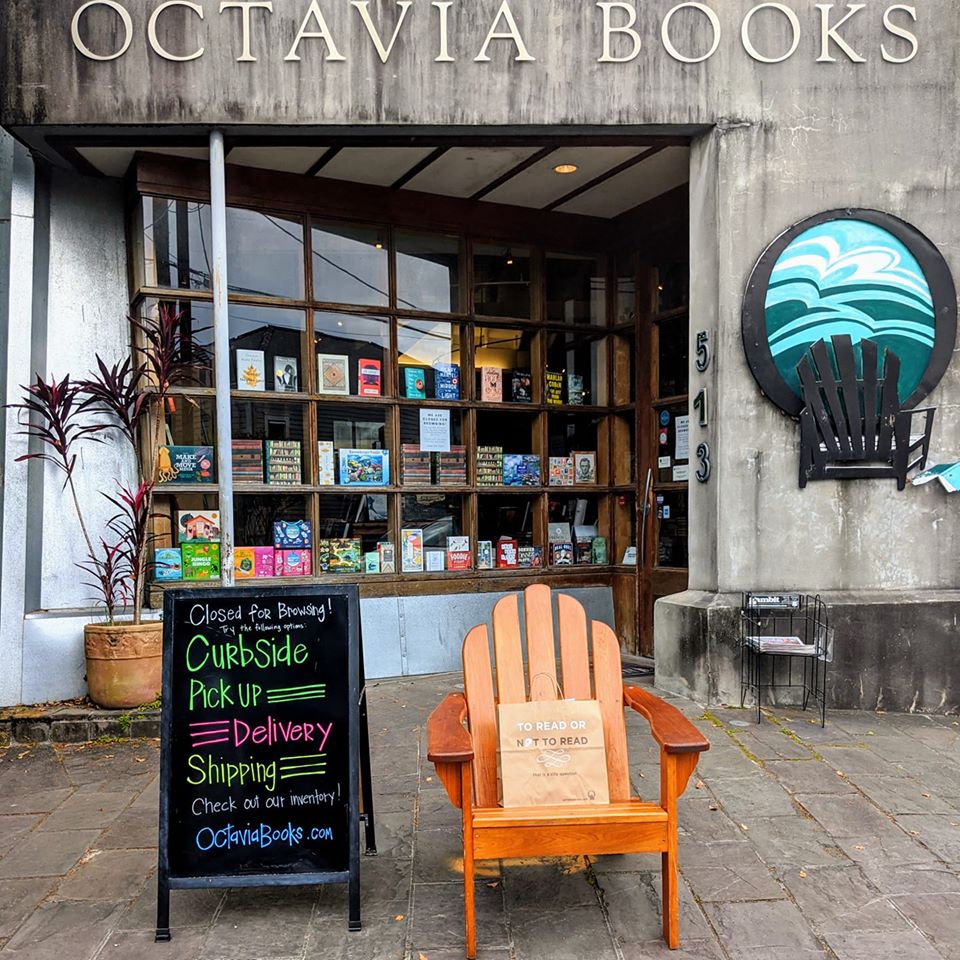 Pull up to a chair.
Pull up to a chair. 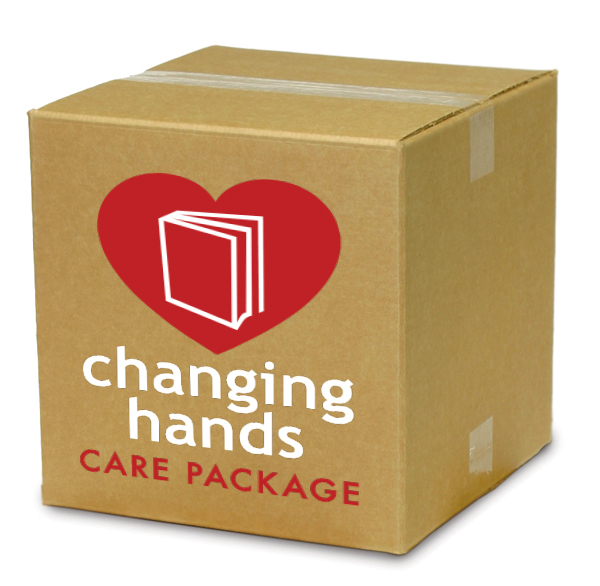 Customized Care (and Self-Care) Packages
Customized Care (and Self-Care) Packages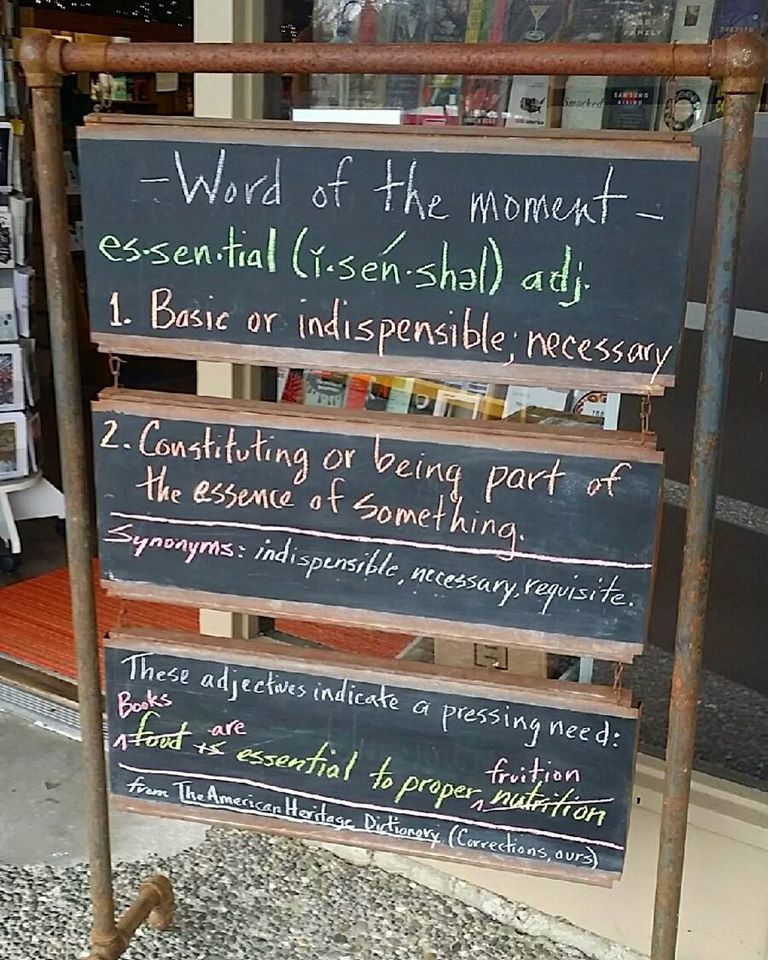
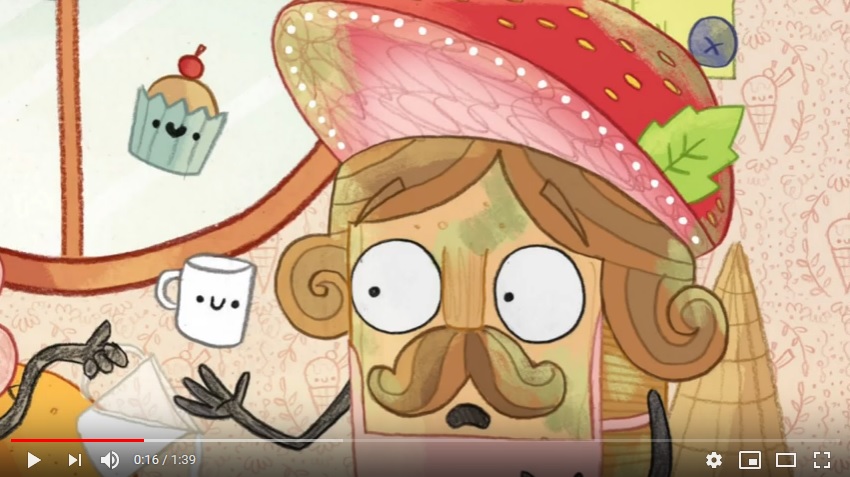 Short & Sweet
Short & Sweet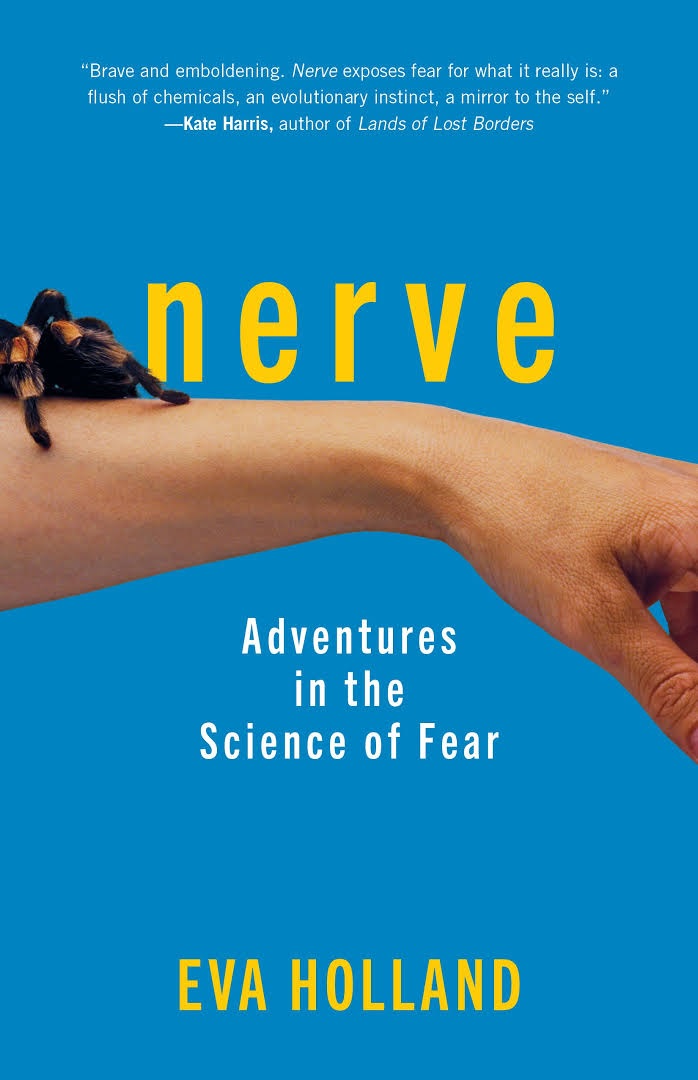 Eva Holland's debut, Nerve: Adventures in the Science of Fear, begins with a dramatic scene: the author paralyzed near the end of an ice climbing outing, preferring to remain in place and freeze to death than to take the one step that would bring her to safety. It's a vivid opening to a fascinating book, one that combines self-help with self-examination as Holland investigates the subject of fear in the hope of overcoming her own.
Eva Holland's debut, Nerve: Adventures in the Science of Fear, begins with a dramatic scene: the author paralyzed near the end of an ice climbing outing, preferring to remain in place and freeze to death than to take the one step that would bring her to safety. It's a vivid opening to a fascinating book, one that combines self-help with self-examination as Holland investigates the subject of fear in the hope of overcoming her own.
